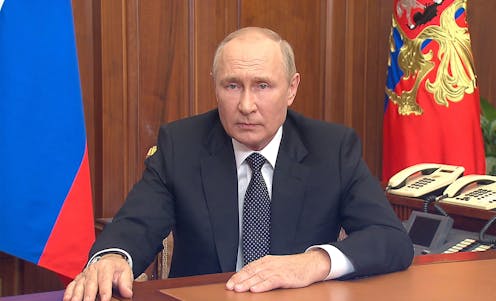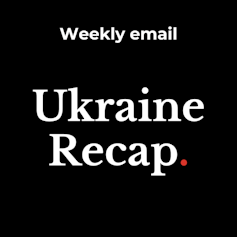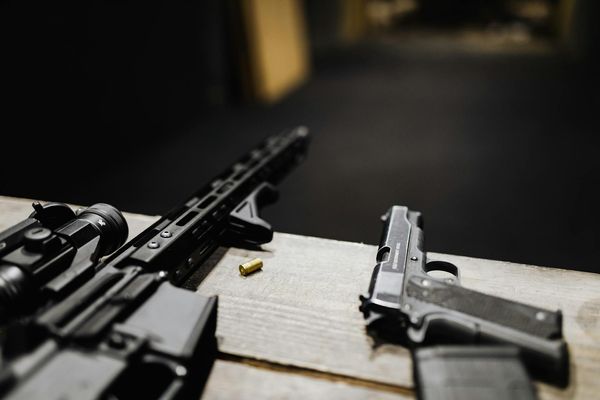
The political climate got a few degrees warmer this week after Vladimir Putin announced a plan for partial mobilisation of Russian reserves, calling on a reservoir of somewhere between 300,000 and a million troops to bolster the Russian military’s parlous position in Ukraine.
He also authorised referendums in four occupied regions. If they are declared to show support for becoming part of the Russian Federation (which is generally thought to be a foregone conclusion), it means that Ukraine’s counteroffensives in these areas will represent an attack on sovereign Russian soil.
He blamed the whole thing on the west, which he said aims to “weaken, divide and ultimately destroy our country”. And, most sinister of all, he issued a chilling warning: “In the event of a threat to the territorial integrity of our country and to defend Russia and our people, we will certainly make use of all weapon systems available to us. This is not a bluff.” This has widely been interpreted to be a threat to resort to Russia’s nuclear arsenal.
Thus he appeared at a stroke to have shifted the emphasis of Russia’s nuclear doctrine from only using nuclear weapons if there is a threat to Russia’s very existence to situations where there is a threat to Russia’s territorial integrity.
Stefan Wolff from the University of Birmingham and Tatyana Malyarenko from the University of Odesa have put Putin’s speech into context and believe that for all the threats and bluster, these are the words of a man under pressure which – while they may have upped the ante considerably, also betray the weakness of his – and Russia’s – position.
Robert Dover, meanwhile, who is an expert in intelligence and international security at the University of Hull, has parsed Putin’s speech, looking at what he said and what he meant. The west would do well to take him very seriously, Dover warns.
Read more: Putin's mobilisation speech: what he said and what he meant

This is our weekly recap of expert analysis of the Ukraine conflict. The Conversation, a not-for-profit newsgroup, works with a wide range of academics across its global network to produce evidence-based analysis. Get these recaps in your inbox every Thursday. Subscribe here.
On the battlefield
So what does Putin’s order for partial mobilisation actually mean? On the face of it, Russia can command enormous military reserves. But how well trained are they and how well motivated. The queues at the Russian border and skyrocketing price of air tickets to anywhere safe from the draft hint a the level of morale just at the moment.
Christopher Morris from the School of Strategy at the University of Portsmouth examines the flaws in Russia’s mobilisation plan and its likely impact on the course of the war.
Read more: Russian army: Putin details the next stage of the Ukraine war and who is being called up
Meanwhile, what is Ukraine doing that has achieved such dramatic success? The lightning counterattack in the northeast this month has pushed Russia back – in some areas right back to its own borders. More than 2,000 sq km of territory have been liberated from Russian occupation (reportedly uncovering grisly evidence of more war crimes by the day).
Benjamin Jensen, a professor of strategic studies at Marine Corps University in Virginia in the US says this is a classic use of what has become know in military cicles as “operational art”, something ironically pioneered by Soviet forces in the period between the first and second world wars. Jensen has identified three key insights about modern warfare in the recent Ukrainian success.
Geopolitics
In addition to all the pressure he’s under from his military’s poor showing on the battlefield, Putin is likely to still be smarting from the humiliation of having to publicly admit that his ally, the Chinese president Xi Jinping, has “concerns” about the war in Ukraine. These, says Stefan Wolff, are centred on the fact that Beijing tends to prefer global stability – all the better for China’s exports.
Wolff believes its an indication of the shifting dynamics between the two countries, something seen most clearly in central Asia, once firmly in Moscow’s sphere of influence, but now at the heart of Beijing’s massive Belt and Road infrastructure project.
Read more: Ukraine war: Putin's failure will pave the way for China's rise to pre-eminence in Eurasia
And, with Russia increasingly bogged down in Ukraine, we’re seeing flare-ups in countries that Moscow had previously seen as being in its orbit. There were several days of violence between Azerbaijan and Armenia in the disputed Nagorno-Karabakh region and border clashes between Kyrgyzstan and Tajikistan.
Kevork Oskanian, an expert in post-Soviet affairs at the University of Exeter, walks us through the fiendishly complicated politics being played out in Nagorno-Karabakh.
Read more: Ukraine war: with Russia bogged down on the battlefield, trouble has flared up again in the Caucasus
According to intelligence reports from Ukraine in recent weeks Russia has been deploying Iranian “kamikaze drones” to murderous effect and is planning to buy “millions” of Soviet-era weapons from North Korea. Russia has long had a relationship with Iran, but the growing closeness with Pyongyang suggests that, as Russia becomes isolated from the west following its invasion of Ukraine, the Kremlin is seeking to improve its cooperation with rogue regimes.
Barbara Yoxon, a lecturer in international politics at Lancaster University, believes this new axis – which is likely to include China – could pose a real threat to the west in the coming years. In June, for example, both Russia and China vetoed a UN resolution to impose new sanctions on North Korea as a result of its nuclear activities. The west should ignore this at its peril, Yoxon writes.
Read more: Russia is building a closer alliance with the world's autocracies – the west should beware
Putin’s mobilisation speech drew a strong reaction from the US president, Joe Biden, who was at the annual meeting of the UN general assembly. Biden called Putin’s threats “reckless” and said they were “an extremely significant violation” of the UN charter.
Both Biden and the Ukrainian president, Volodymyr Zelensky, took the opportunity to call for radical reforms of the UN which, after all, has not prevented the conflict in Ukraine. Zelensky called for Russia to be stripped of its veto as a permanent member of the security council and said the UN must become more inclusive and accountable. Biden pledged funds for this purpose.
Farsan Ghassim of the University of Oxford was part of a team which conducted a global survey to discover what people around the world thought of the UN and how it could be reformed. Here, he gives us a digest of the findings of that survey, which – if implemented – would represent the most radical remaking of the UN since its inception in 1945.
Read more: Calls by Zelensky and Biden for UN reform are supported by people around the world – new survey
Are sanctions working?
Finally, much has been written about the strength of western sanctions against Russia since the invasion in February. Travel bans, asset freezes, the prohibition of exports and the energy embargo should have bitten deep into the Russian economy. But have they? They have not stopped Russia from waging war in Ukraine. And, at least for the time being, Putin’s grip on power in Russia itself remains strong.
Christopher Michaelsen, who specialises in global governance at the University of Sydney, has run a ruler over the sanctions and writes that – at the very least – they could prove a vital bargaining tool when, as we all hope it will, this terrible conflict is finally resolved at the bargaining table.
Read more: Are the West's sanctions against Russia actually working?
Ukraine Recap is available as a weekly email newsletter. Click here to get our recaps directly in your inbox.
This article was originally published on The Conversation. Read the original article.







